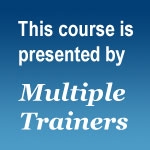

Search Results: empathy
-
Live from the beauty of needs through deep self-compassion and spacious inner transformation.
-
Experience John Kinyon's application of NVC Founder Marshall Rosenberg's 4-part model of reconciliation and healing, a model he developed over the course of decades of work with people around the world who have experienced the deep pain of violence.
-
Apply NVC mediation skills in child-related conflicts, for parents, teachers, and others.
-
Discover deeper self-acceptance, unlocking emotional healing and spiritual presence.
-
Honor the wisdom in your BIG emotions as you are guided through anger, fear, and shame with NVC.
-
Trainer Tip: Accepting our true feelings, needs and values can lead us to a more compassionate life. Are you being true to yourself?
-
Jim and Jori offer a tip to stay present in the face of our reactivity to witnessed conflict.
-
Bring your inquisitive mind and open heart to explore principles that ground the practice of NVC.
-
If you’d like to bring more joy and fun into your workplace, listen to this trainer dialogue for NVC tips and tools from some of the leading experts in the industry.
-
Miki works with a course participant to transform begrudging attendance at a mandatory meeting into the possibility for collaboration, more connection where little is expected and focus on clarity of purpose for meeting in the first place.
-
Trainer Tip: Let's start an abundance movement! We get great joy from contributing to others lives and allowing them to contribute to ours, let's not let fear get in the way.
-
Trainer Tip: We can improve our relationships by focusing our attention first on connection instead of other stragegies.
-
Trainer Tip: Take a moment to consider feelings, our conditioning about expressing or even feeling emotion, and the value of re-evaluating our relationship to feelings.
-
Trainer Tip: Taking time to mourn our regrets and unmet needs can lead to a deeper self-connection and feelings of peace.
-
Miki explains how teachers and administrators can become more effective in relating to themselves, other faculty and staff, and they can contribute more to students' ability to feel connected and energized. Nonviolent Communication provides specific tools to empower ourselves and others to live more in line with our values and deeper needs.
-
Learn practical ways to live compassionately through hands-on exercises and demonstrations.
-
Learn tools to reconnect and heal your relationship with adult children.
-
Join CNVC Certified Trainer Dian Killian to find out how to speak up in a way that ensures you're heard, even in challenging situations.
-
Eric Bowers explains how needs and strategies correlate to different brain hemispheres, and how relaxing into our needs opens us to greater possibilities.
-
Who does not want to be understood? In Tip #6, Eric shows you how to deepen connection and trust by checking your understanding with the person you are conversing with.
Quick Links

Stay in Touch!
We value your privacy, won't share your email address and you can easily unsubscribe any time.




















